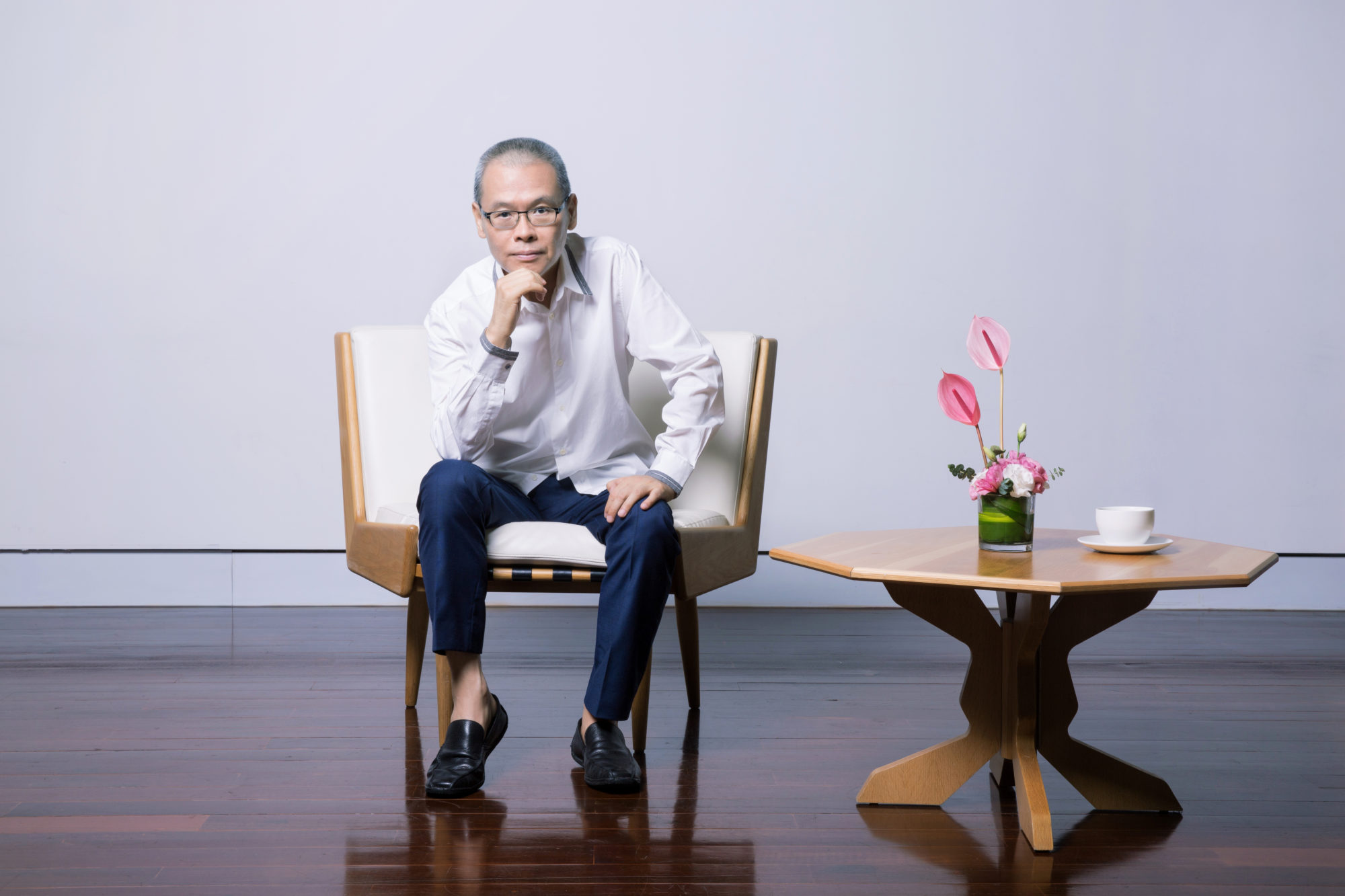
Budiardjo “Budi” Tek, the celebrated Indonesian-Chinese art collector who founded Shanghai’s Yuz Museum, has died from pancreatic cancer. He was 65, and had been diagnosed with the disease six years ago.
“As one of Asia’s top collectors, Mr. Tek collects but never hesitates to share,” his family wrote in a statement confirming his passing on March 18. “He spends his lifetime cultivating talents endlessly.”
Tek made his fortune as the head of the vertically integrated poultry company PT Sierad Produce Tbk and began buying art in 2004. In the ensuing years, he managed to assemble a collection of more than 1,500 pieces, with a focus on the Chinese contemporary art of the politically turbulent 1980s and ‘90s.
Then, in 2014, he founded the Yuz Museum inside a 9,000-square-foot former aircraft hanger in Shanghai’s West Bund. (The name comes from the possessive of his Chinese name, Yu Deyao.) Over the years, the museum hosted blockbuster shows by such international artists as KAWS, Alberto Giacometti, and Andy Warhol; surveys of Chinese art; and spotlights on crowd favorites like Random International’s Rain Room.
Everything changed the year after Tek’s museum opened its doors, when he received a devastating diagnosis of pancreatic cancer. Initially told he might not last the year, he managed to survive longer than many doctors expected, and quickly set about planning for the future of his collection.
In 2018, Tek announced plans for a unique partnership with the Yuz Museum and the Los Angeles County Museum of Art. The plan was to launch a foundation that would oversee his holdings and allow for its rotating display at both museums. The following year, the partnership expanded to include Qatar Museums.
A selection of 20 works from his holdings by such artists as Ai Weiwei, Xu Bing, and Qiu Anxiong went on view at the Los Angeles institution last year in “Legacies of Exchange,” the first fruits of the collaboration.
Yuz Museum. Photo courtesy of the Yuz Museum, Shanghai.
“Budi Tek has been a great inspiration to me and LACMA, encouraging us to link East and West, Los Angeles and Shanghai, with contemporary art,” LACMA director Michael Govan told Artnet News. “By establishing a foundation, and his pioneering Yuz Museum in the West Bund in Shanghai, Budi helped energize the growth of museums in Shanghai, which is now truly an international center for contemporary art. Personally, to me, Budi was a great inspiration in his commitment to art and his many creative ideas, especially as he bravely confronted his advanced illness for many years.”
Ultimately, the collaboration with LACMA hit roadblocks due not only to the pandemic and Tek’s diminishing health, but also strained relations between China and the United States, as well as Chinese law, which prevented Tek from turning the Yuz Museum into a public institution as he had envisioned.
Although Govan said it was “impossible to establish the joint foundation between LACMA and Yuz in China as we had planned,” Tek did donate several of the “Legacies” loans to LACMA. “Ai Weiwei’s Circle of Animals/Zodiac Heads… will remain at LACMA and is currently being reinstalled outside at the center of LACMA’s campus.”
Installation view of “Legacies of Exchange: Chinese Contemporary Art from the Yuz Foundation” with Ai Weiwei’s Circle of Animals/Zodiac Head at the Los Angeles County Museum of Art, 2021. Courtesy of LACMA.
Tek’s death comes less than two weeks after of the opening of the Yuz Museum’s highly anticipated Yoshitomo Nara show, another collaboration with LACMA and the Qatar Museums.
“Budi was a true patron and a true friend to artists,” Marc Glimcher, president and CEO of Pace Gallery, which represents Nara, told ARTnews. “He helped establish Shanghai as a global art center by creating the Yuz Museum, a true 21st-century model, where an individual’s patronage and involvement benefited the entire city.”
Tek’s daughter Justine Alexandria will remain CEO of the Yuz Museum and director of the Yuz Foundation, according to the Art Newspaper.
In a 2019 interview, Tek told Artnet News about his vision for the future of his art, and how that fit into his broader understanding of his legacy. “In China, there is a ‘big me’ and a ‘small me.’ So, this is a ‘small me’ speaking now; to become the ‘big me’ you need to sacrifice yourself to contribute to the greater ‘me,’ which is society—the world,” Tek said.
“I am also a Christian, so I believe in the Bible, and it says that giving is more blessed than receiving. Maybe because of that I experienced a miracle. All the doctors said, ‘You only have six months to a year,’ and I’m getting better each day. So, if you were in my position, you would see why I have the urge to give. I don’t know how long I will live, but I intend to live longer.”